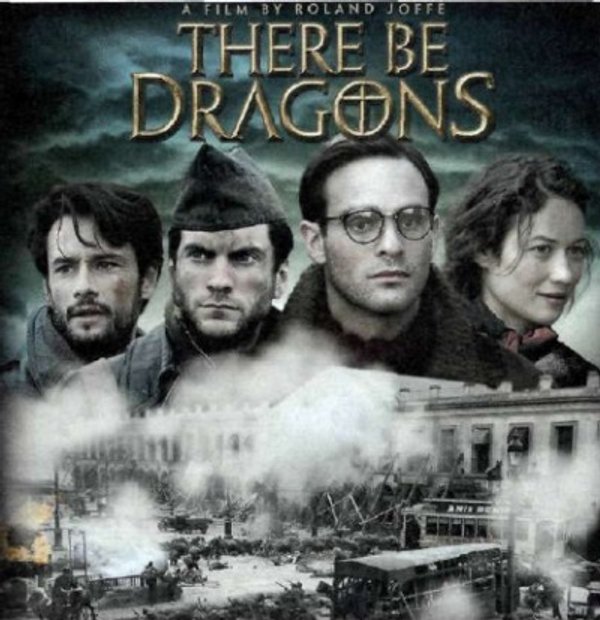African Premiere coming soon
A Roland Joffé Film
Starring: Charlie Cox, Wes Bentley, Olga Kurylenko & Dougray Scott
There Be Dragons is an historical drama, directed by Roland Joffé (The Mission, The Killing Fields, City of Joy and Captivity), that evokes the youthful years of St. Josemaría Escrivá (1902-1975), Opus Dei's founder (played by Charlie Cox), and his attitude to the Spanish Civil War. Robert (played by Dougray Scott) is a journalist who, on investigating the figure of the founder of Opus Dei to write an extensive report, discovers that his father, Manolo (played by Wes Bentley), with whom he has had no relationship for the past eight years, was a friend of Escrivá during his childhood. From that moment, the plot leads the journalist and with him the public, to discover unimaginable surprises that would change his life forever.
There Be Dragons features themes such as betrayal, love and hatred, forgiveness, friendship, and finding meaning in everyday life. The film is the story of revolutionary soldiers, a journalist, his father, and a real life priest, St. Josemaría Escrivá, a Catholic saint and founder of Opus Dei, who has been called the saint of ordinary life. Director Roland Joffé said There Be Dragons is "a story about people trying to find meaning about their lives."
The theme of forgiveness, says Charlie Cox, who plays “St. Josemaría,” is “always going to be a key when you're talking about Christianity at all, especially if you’re talking about a man who is canonized.” “Josemaría,” Cox adds, “understood that the reason one must forgive is because that hatred and that anger and that resentment lives in you.”
Joffé, who was nominated for an Academy Award for his film The Mission, describes himself as a wobbly agnostic. He was “very interested in the idea of embarking on a piece of work that took religion seriously on its own terms and didn't play a game where one approached religion denying its validity.” ‘Reconciliation matters’ is the main take away message that Joffé expects from the viewers. Life, he said, is an opportunity to love: “It’s a choice, and in making that decision you become free. You do not become free when you hate. The weird thing is when you really love, you feel it like a breath of freedom, you think ‘Oh my God, I’ve chosen this, and it’s beautiful’.” He emphasized that Christianity is about love and the teaching of St. Josemaría “encourages a spiritual relationship with God in ‘very simple things,’ in cooking a meal, being with one’s family, or even having a fight.” Joffé states that this is “a film about what it means to be a saint in this day and age.”
The title "There Be Dragons" is a shorter version of the phrase hic sunt dracones, an ancient way of denoting on maps a place where there is danger, or an unknown place, a place to be explored. In this movie, says co-producer Ignacio G. Sancha, we were exploring the unknown territories of hatred, guilt, and forgiveness.
The New York Times, which called the movie a religious epic, reported that Joffé agreed to make the movie “after he saw a video of Escrivá answering a question from a Jewish girl who wanted to convert to Catholicism. Escrivá told her that she should not convert, because it would be disrespectful to her parents. ‘I thought this was so open-minded,’ Joffé said.” At that point, Joffé signed on to direct, with the condition of writing a new screenplay from scratch and becoming a producer. Writer Elizabeth Lev says that the film portrays Josemaría Escrivá “as a new kind of hero in an era of hatred and fratricidal fights.” This is especially relevant to the current situation in Eastern Africa.
Contact Person in Kenya:
Lucy Mulli – 0721637411 (mlucymulli@gmail.com)
